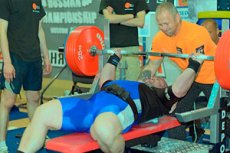New publications
Intense exercise reduces activity and body temperature, contributing to weight gain
Last reviewed: 02.07.2025

All iLive content is medically reviewed or fact checked to ensure as much factual accuracy as possible.
We have strict sourcing guidelines and only link to reputable media sites, academic research institutions and, whenever possible, medically peer reviewed studies. Note that the numbers in parentheses ([1], [2], etc.) are clickable links to these studies.
If you feel that any of our content is inaccurate, out-of-date, or otherwise questionable, please select it and press Ctrl + Enter.

Exercise is often recommended as an effective strategy for weight loss. However, a recent animal study conducted at the University of Tsukuba found that intense exercise may reduce subsequent physical activity and body temperature, which may ultimately contribute to weight gain. This observation may be due to disruptions in the circadian rhythm of the stress hormone corticosterone and may disrupt the synchronous effects of physical activity and body temperature.
Exercise has many health benefits, but its effect on weight loss is sometimes less than expected. This phenomenon may be secondary to a decrease in physical activity after exercise, but the mechanism is not fully understood.
The stress hormone corticosterone follows a circadian rhythm, being low before sleep and peaking upon awakening, and it regulates levels of physical and mental activity. Therefore, the researchers hypothesized that even a single session of high-intensity exercise could disrupt this rhythm, leading to a decrease in physical activity and heat production, and reducing the effect of weight loss.
To test this hypothesis, mice were divided into three groups: high-intensity exercise, moderate-intensity exercise, and rest. Physical activity and body temperature, which is an indicator of heat production before and after exercise, were monitored. The study was published in the journal Medicine & Science in Sports & Exercise.
In the high-intensity exercise group, both physical activity and body temperature after exercise were significantly reduced despite no change in food intake, resulting in weight gain.
Moreover, the researchers observed a disruption in the synchrony between physical activity and body temperature. Together, they confirmed a positive correlation that relatively low blood corticosterone levels during wakefulness were associated with less physical activity.
The findings suggest that a single session of high-intensity exercise can disrupt the circadian rhythm of corticosterone, leading to decreased physical activity, body temperature, and weight gain.
This study highlights the importance of considering not only the calories burned during exercise, but also subsequent activity levels and circadian rhythm when designing exercise programs for effective weight loss.
